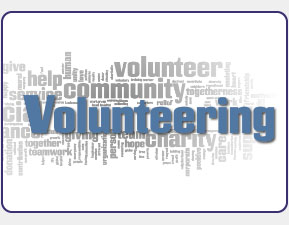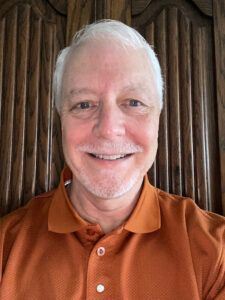 What are you doing with the ACR now? Why are you teaching rheumatology at the med school? Why did you go on that medical mission trip? I’m often asked these and other questions.
What are you doing with the ACR now? Why are you teaching rheumatology at the med school? Why did you go on that medical mission trip? I’m often asked these and other questions.
Not initially by design but by happenstance, volunteerism has been readily integrated into my career and life over time. My simple responses to such questions are: Just trying to contribute to the rheumatology mission. Teaching is fun. Medical missions are a special experience. But the truth is more complex than that.
The Longer Answer
My introduction to volunteerism in internal medicine was after I was volunteered—or should I say assigned—to facilitate the entertainment skits by the medicine interns for the end-of-year department Hail and Farewell dinner in 1984.
By nature I am a cup-half-full person, even when sleep deprived. Silly collegial jokes at work, like blockading me in a staff bathroom and immediately paging me to the intensive care unit, would happen to me on a busy day; the department was very content selecting me as their skit master. So although I was on call every third or fourth night, somehow, we interns pulled off filming videos after hours and even performing in-person skits at the banquet; this was medical humor at its best. It was funny, and it was also fun—even though it was extra work.

Dr. Battafarano
As my residency progressed, I found myself assigned to committees to improve the internal medicine clinic or to address the complicated call schedule while trying to complete my senior research project. I was enhancing my skills in team building, communication, time management and volunteerism at a time when I primarily valued augmenting my internal medicine knowledge and skills.
I practiced internal medicine in a 160-bed hospital for three years before my rheumatology fellowship. Inevitably, I garnered more experience from service on various hospital committees, such as risk management and process improvement. I also decided to volunteer as director for the advanced cardiac life support (ACLS) course and as a member of a team working on an outpatient electronic medical record (EMR) project. These volunteer roles posed interesting challenges for me as a teacher and exposed me early to the benefits and concerns of EMRs. These roles were setting the stage for successful professional juggling, as well as for interesting volunteer opportunities.
My transition back to an academic fellowship, with complex patients, frequent presentations, research and a working wife with three children in diapers, was stressful, but the executive skills I had learned in internal medicine helped me survive and, ultimately, thrive.
Serving as a junior faculty member in a large medical center offered me numerous creative opportunities. I liked the challenges posed by clinical rheumatology. Then opportunities to give lectures, serve on graduate medical education (GME) committees and participate in collaborative research arose. Taking these volunteer opportunities allowed me to meet many students, residents and faculty. These volunteer experiences opened doors for more volunteer activities, such as teaching at conferences, mentoring resident research, drafting board review questions for the American Board of Internal Medicine (ABIM), and supporting the local Arthritis Foundation and Lupus Board.
I loved my doctor-patient and teacher-student relationships; however, having an impact on more than one patient at a time or one resident at a time was not only interesting, but also a pleasant and satisfying distraction from routine demands. Volunteer roles in GME, multidisciplinary teaching and care, and medical missions in third-world settings provided me with nontraditional learning, immeasurable experiences, synergy and personal growth. My volunteer experiences became inherent.
As providers serving patients, we routinely provide service greater than self to facilitate optimal patient care, including tasks like prior authorizations. As volunteers, we, too, are trying to contribute to something greater than self—often providing a service that has the potential to make a positive impact for many.
Many volunteer opportunities naturally tap into our individual occupational skillset, allowing us to influence positive change with many on a shared healthcare mission. Whether improving hospital policy, implementing telemedicine, advocating for the community or taking care of the underserved, service greater than self can be interesting, impactful and satisfying.
Get Involved
Volunteering needs to fit your lifestyle and support things you value. Serving as a parent volunteer to assist as a track coach for your daughter’s grade school team may be ideal, simple and short-lived. When deciding to volunteer, one needs to consider the mission, the time commitment, the people involved and personal goals.1 You want to avoid a Sisyphean experience. There is evidence that volunteering enhances well-being, sustains well-being and provides happiness.2-4 Creating a sense of purpose, developing new relationships and developing a perspective on a volunteer mission adds to a sense of belonging.5
Serving on a remote medical mission for the underserved differs from being on a volunteer committee because it removes one from the hectic workplace and places the volunteer in the present moment, without interruptions, with those in need, while at the same time allowing one to share the experience with others.
How can we address the many needs for our rheumatology profession, for each other and for our patients? We have to protect, unite and expand our workforce through various initiatives somehow. Only rheumatologists can save the future of rheumatology and optimize care in urban, suburban and rural settings; no one else can, or will, do this for us. How do we train and sustain a healthy rheumatology workforce? Is there a natural and valued opportunity for you to share essential strategies locally, regionally or nationally? If only we could cut and paste successful underserved rheumatology programs in the U.S. to other underserved areas, then all will be better.
As the volunteer chair of the ACR Workforce Solutions Committee, I can say that we are trying to:
- Enhance the ability of individual patients to receive optimal rheumatology care, regardless of their background;
- Facilitate rheumatology care with a multidisciplinary network;
- Support individual rheumatologists with success and well-being; and
- Assist the ACR with multipronged tools and advocacy for rheumatology.
And certainly, communities will benefit from ongoing rheumatologist(s) input.
Volunteer intentions and solutions are never perfect, but they provide us with professional opportunities, experiences and personal growth far greater than self. Ultimately, my volunteer service has allowed me to get past self and resulted in good outcomes for others. I encourage others to volunteer as well.
Daniel F. Battafarano, DO, MACP, MACR, is an adjoint professor of medicine at the University of Texas Health and the University of the Incarnate Word College of Osteopathic Medicine, both in San Antonio and a professor of medicine at the Uniformed Services University of the Health Sciences, Bethesda, Md. He retired from the U.S. Army Medical Corps as a colonel.
References
- The health benefits of volunteering. University of Maryland Medical System. (n.d.) https://health.umms.org/2022/03/14/benefits-of-volunteering.
- Thoits PA, Hewitt LN. Volunteer work and well-being. J Health Soc Behav. 2001 Jun;42(2):115–131.
- Borgonovi F. Doing well by doing good. The relationship between formal volunteering and self-reported health and happiness. Soc Sci Med. 2008 Jun;66(11):2321–2334.
- Lawton RN, Gramatki I, Watt W, et al. Does volunteering make us happier, or are happier people more likely to volunteer? Addressing the problems of reverse causality when estimating the wellbeing impacts of volunteering. J Happiness Stud. 2020 Mar 17;22:599–624.
- 10 benefits of helping others. University College London. 2020 Apr 28. https://www.ucl.ac.uk/students/news/2020/apr/10-benefits-helping-others.


